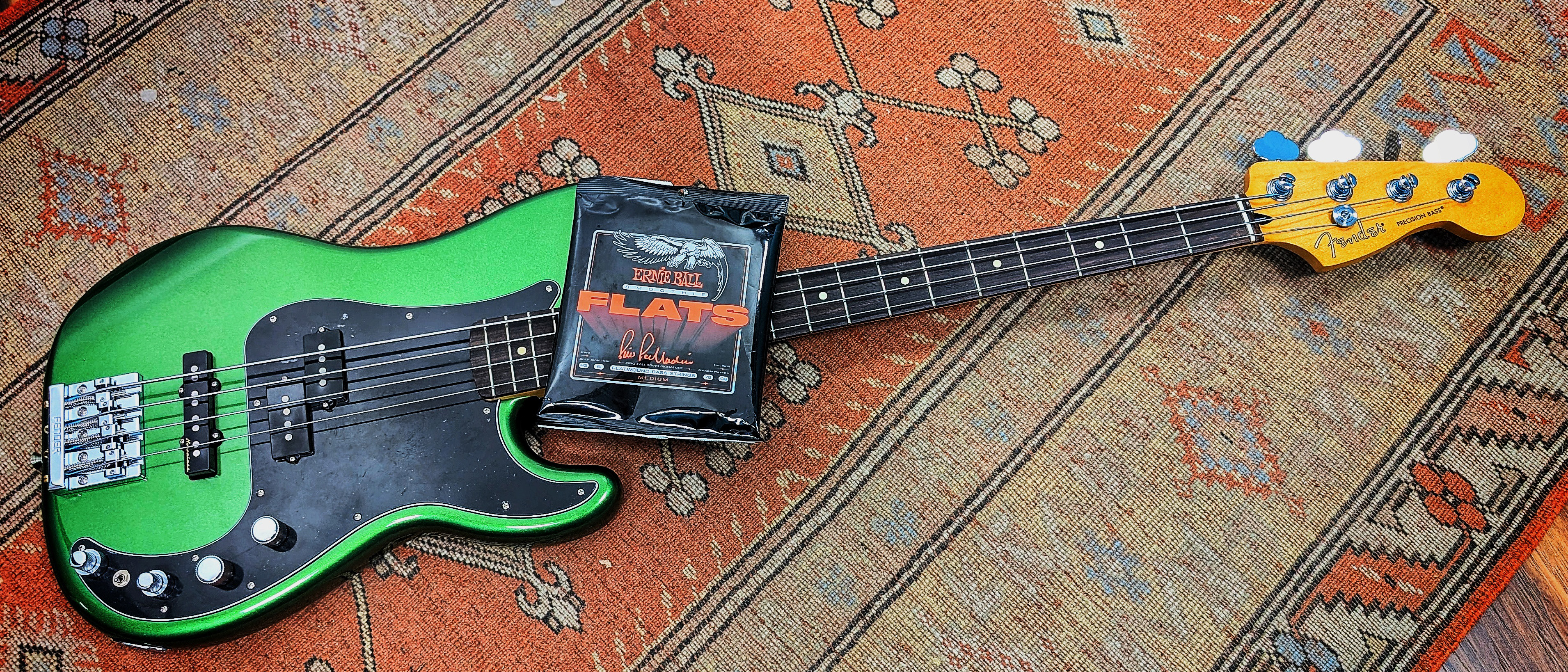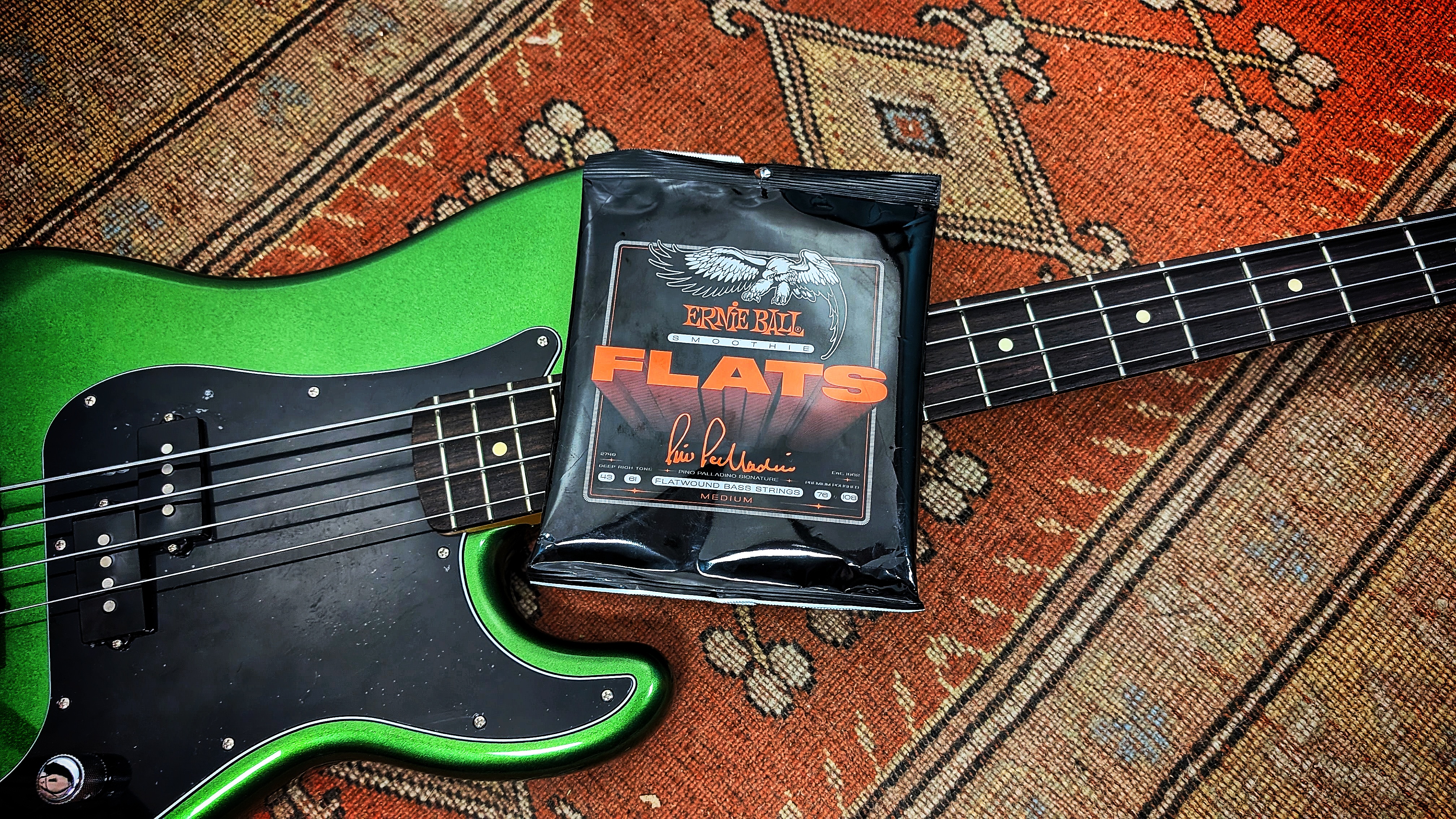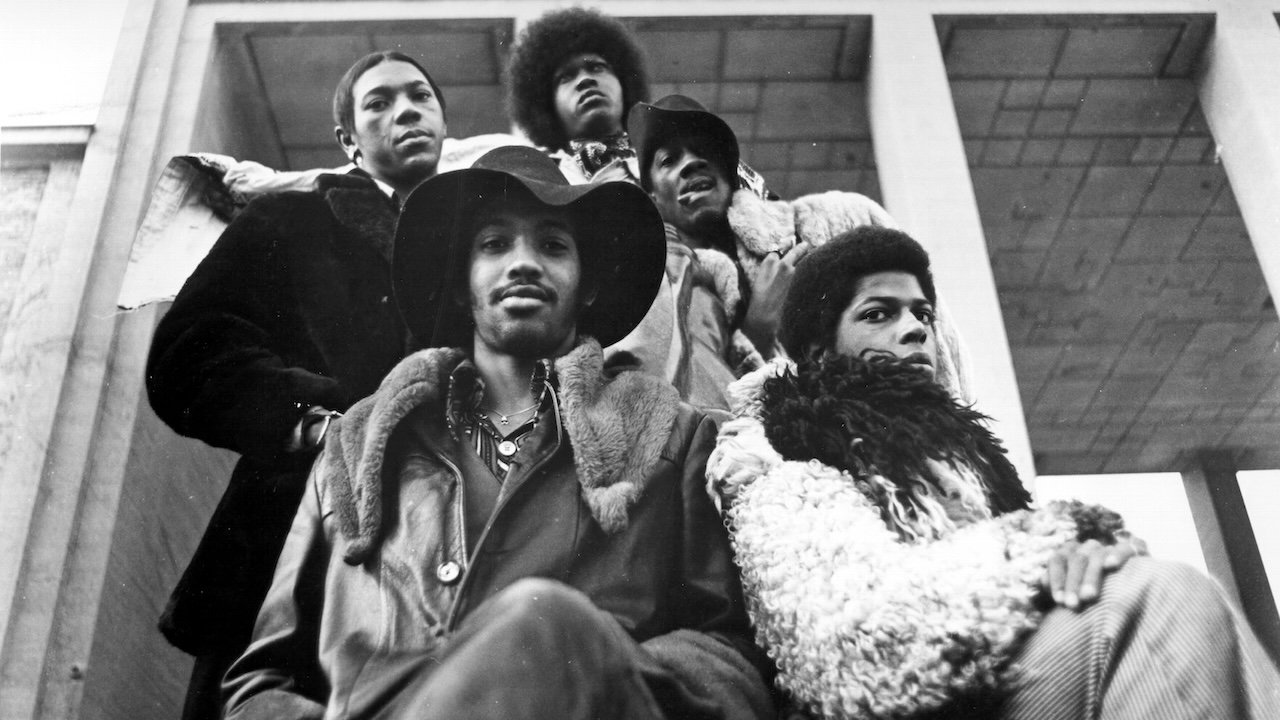"The building blocks of ’60s-style rock and roll, R&B and funk/soul": Ernie Ball Pino Palladino Smoothies flatwound bass strings review
Inject some vintage flavour without becoming entirely throwback with the bass legend's new signature flatwound string set

All the latest guitar news, interviews, lessons, reviews, deals and more, direct to your inbox!
You are now subscribed
Your newsletter sign-up was successful
What is it?
The old adage goes, “If you want great, vintage bass tone, change your bass strings approximately half as regularly as you change your bank account”. Or something like that.
Indeed, Motown legend, James Jamerson was famous for rarely changing his strings, claiming “the gunk keeps the funk”, and he wasn’t alone.
Countless bassists prefer the sound of well-played strings that have long lost the high-end sizzle and bright attack of a pack-fresh set. Americana session player, Bonnie Whitmore told Guitar World in 2021, “I'm one of those bassists who never changes their strings, and when I do, I rub bacon fat on them to deaden them!”
But, what if you don’t have years of time or would prefer not to be reminded of cured meats every time you play, there is another way: flatwound strings.
Another player who has been a longterm convert to flatwounds is Pino Palladino, who you’re probably familiar with from his work with, well…everyone. Most recently, Pino announced that he's teamed-up with Ernie Ball to release a signature set of flatwounds: Ernie Ball Pino Palladino Smoothies. made of an outer wrap of cobalt-alloy ribbon over an inner core of steel, these strings aim to give you Pino's preferred starting point and feel straight out of the pack.
“I guess we could go back to the mid-90s” Pino tells Ernie Ball. “I’d been playing my fretless bass almost exclusively on lots of sessions, and there came a point where I was just getting a little jaded with it.
"I got myself a Fender Precision Bass and put some flatwound strings on it. That became a new thing for me.”
All the latest guitar news, interviews, lessons, reviews, deals and more, direct to your inbox!
What are flatwound strings?
As with roundwound bass strings, flatwound strings consist of an outer winding, wrapped around a central core. However, where roundwound strings feature a (you guessed it) round-profiled outer wrap, flatwounds use a flat, ribbon-profiled wrap. This not only changes the feel of the string, but it also pretty much eliminates the friction-creating gaps between each wind. For a more detailed description, check out our guide to the differences between flatwound vs roundwound bass strings.
In Use

I tried the Pino Palladino Smoothie Flats in Medium gauge (43, 61, 76, 104) –– one of two gauges spec’d by Pino with Super Light also available –– on a couple of different basses. First was a Fender Player II Modified Precision Bass (an active P-Bass with a PJ pickup configuration) as well as a Squier Jazz Bass.
They come in standard packaging with cloth-wrapped ends to help reduce and prevent string slippage, and I’m pleased to say that (unlike the occasional experience from various other brands) they came out of the pack free of any oxidization.
Reviewing strings from ‘tonal memory’ is fraught with potential suggestion and subliminal observations, so, to aid with the sonic side of this review, I recorded a few simple basslines with the original roundwound strings and again with the flatwounds. However, the first thing that’s immediately obvious with flatwounds as much as the tonal difference, is the change in feel.
The first stop was an appointment with an allen key. Flatwound strings can add a little more tension relative to roundwounds, and while slight, I tweaked the truss rod in order to remove a little of the additional relief.
These strings are extremely forgiving, which makes playing them for extended periods a joy, without fatigue on your fingertips. The cobalt wrap has been highly-polished to produce a glassy feel, and it’s really noticeable when traversing the fretboard.
Of course, this isn’t unique to Pino’s signature Ernie Balls, and a good amount of the shift in comfort qualities come from the flatwound ribbon’s profile - helped along here by the finishing process. But if you haven’t ever tried flats instead of roundwounds and are looking for something a little less callous, you’re in for a treat.
Now, let’s talk about cobalt. As you might already be aware, Ernie Ball uses cobalt in place of steel for the outer wrap on a number of its strings, and the main characteristics of cobalt are a strong output, combined with heavier bass and a clarity-boosting lift in the treble end.
This might seem contrary to the ethos of flatwounds, and in a sense, it is. So, while there’s an audible difference in the tonality between the Smoothies and roundwounds, it’s more subtle.
The finger-noise is most definitely reduced by a long way, and the higher end is tamed too. Overall there’s less of the new-string zing too, which is something that you’ll either love or not, depending on where you stand on glossy-sounding new strings.
But the presence is still there, maintaining note definition. Tonally, the straight-through, unprocessed difference in sound place the Smoothies in the ‘vintage-inspired’ category rather than out-and-out old school tones. You get all the feel of flatwound strings, with a retro vibe that still has a modern twist to it, much like the man who they’re made for.
Final Thoughts

If you’re after the building blocks of ’60s-style rock and roll, R&B and funk/soul, these will certainly get you a long way towards them, without being wholly throwback straight out of the pack.
The tonality will dull over time, for sure, but in the weeks I’ve had them fitted to my bass they’ve held their tuning and intonation, with the tonal characteristics still intact.
The biggest change comes from the super-comfortable feel, aided by the high-sheen finishing. It’s been an interesting and inspiring start, but needless to say, my jazz Bass is going to remain strung with flats for the foreseeable future.

Stuart has been working for guitar publications since 2008, beginning his career as Reviews Editor for Total Guitar before becoming Editor for six years. During this time, he and the team brought the magazine into the modern age with digital editions, a Youtube channel and the Apple chart-bothering Total Guitar Podcast. Stuart has also served as a freelance writer for Guitar World, Guitarist and MusicRadar reviewing hundreds of products spanning everything from acoustic guitars to valve amps, modelers and plugins. When not spouting his opinions on the best new gear, Stuart has been reminded on many occasions that the 'never meet your heroes' rule is entirely wrong, clocking-up interviews with the likes of Eddie Van Halen, Foo Fighters, Green Day and many, many more. If he's not playing the guitar, you'll likely find Stuart behind the kit playing Valerie to newlyweds.
You must confirm your public display name before commenting
Please logout and then login again, you will then be prompted to enter your display name.

